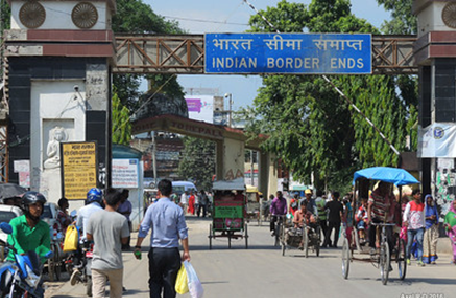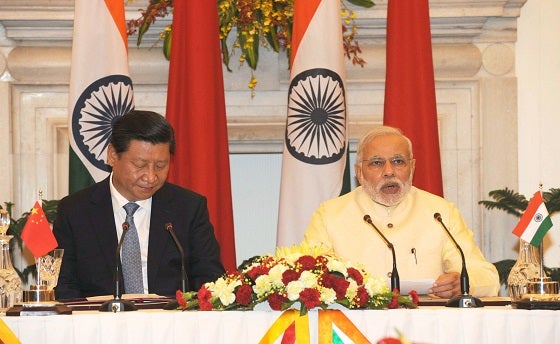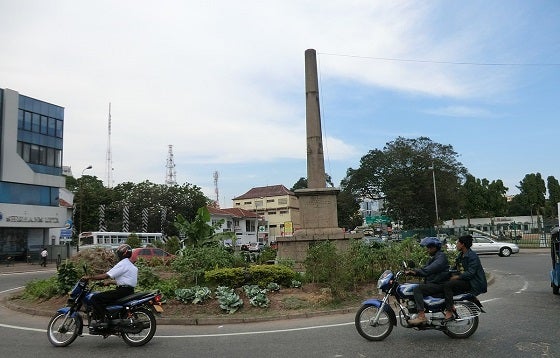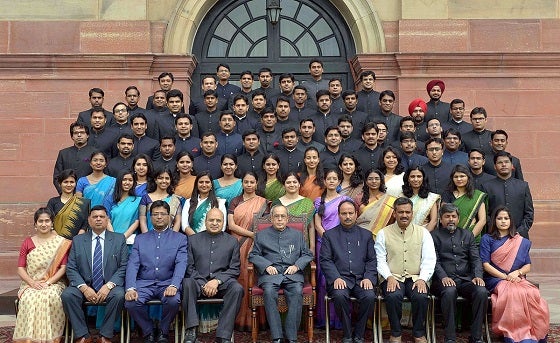
| Title: | India-Nepal Row over the Updated Map of India |
| Author/s: | Amit Ranjan |
| Abstract: | Nepal is unhappy that Kalapani, the Lipulekh pass and Limpiyadhura are being shown in the updated map of India as Indian territories while India defends its demarcations as “accurate”. The roots of the present row lie in the history of the region. Both India and Nepal have historical documents supporting their claims over the Kalapani area. This paper looks at the history of India-Nepal border issues and examines the present row over the updated map of India. |
| Date: | 7 December 2019 |
| Read More |

| Title: | China’s Digital Expansion and India |
| Author/s: | Chilamkuri Raja Mohan, Chan Jia Hao |
| Abstract: | In reviewing a digital dimension of President Xi Jinping’s Belt and Road Initiative, this paper examines the antecedents, structure and impact of China’s Digital Silk Road (DSR). The focus of the paper is on the external dimensions of China’s DSR and will assess the geopolitical consequences of the DSR with special reference to India. It will also reflect on the paradox of India’s strong critique of the BRI and its unintended integration into DSR. |
| Date: | 8 October 2019 |
| Read More |

| Title: | South India: Possible Key to India’s Next Government |
| Author/s: | Nalin Mehta |
| Abstract: | India’s southern states could hold the fulcrum of power in New Delhi if the current parliamentary polls result in a hung Lok Sabha, the Lower House of Parliament. Unlike in the northern Hindi heartland states, the ruling Bharatiya Janata Party (BJP) is a major player in only one of five south Indian states, Karnataka. It is, however, hoping to open its account in Kerala after the recent Sabarimala controversy and has entered into a wider alliance in Tamil Nadu with the state’s ruling All India Anna Dravida Munnetra Kazhagamwhich swept the state in 2014 but now faces a major challenge of anti-incumbency. The BJP’s southern power play, combined with Rahul Gandhi’s gambit of leading his party’s southern charge from the front by contesting from Wayanad in Kerala, indicates how crucial the southern states will be as swing factors in government-formation if no party wins an absolute majority. This paper summarises the political outlook in India’s five southern states – Tamil Nadu, Karnataka, Kerala, Andhra Pradesh and Telangana – examines key factors at play and puts together cumulative data from various state-wise opinion polls to illustrate likely prospects in this crucial region in India’s national election. |
| Date: | 19 April 2019 |
| Read More |

| Title: | 318 : Japan’s Foreign Aid to South Asia: Addressing a Strategic Need |
| Author/s: | Sojin Shin |
| Abstract: | What motivates Japan to look at South Asia as a foreign aid destination? This paper explores the evolution of Japanese attitudes toward South Asia in foreign aid. Japan began sending official development assistance (ODA) to the region as early as 1958 and has become one of its largest contributors. However, Japan’s ODA goals to the region have been underexplored. Japan has expanded economic diplomacy by capitalising on the policy of development cooperation to the region and recently stretched it out to the security building cooperation with aid recipients in South Asia, especially with India. |
| Date: | 8 March 2019 |
| Read More |

| Title: | 317 : Implications of a New “Normal” Indian Ocean Economy for Sri Lanka |
| Author/s: | Ganeshan Wignaraja |
| Abstract: | This paper looks at the macroeconomic implications of the Indian Ocean economy for Sri Lanka since the 2008-09 global financial crisis. It maps the region’s trade and growth outlook, examines Sri Lanka’s role in the regional economy, explores challenges to realizing the regional outlook and outlines Sri Lanka’s diplomatic initiative to ensure the peaceful rise of the Indian Ocean economy. |
| Date: | 8 March 2019 |
| Read More |

| Title: | 316 : Sri Lanka and Japan: Emerging Partnership |
| Author/s: | Chulanee Attanayake and Roshni Kapur |
| Abstract: | Sri Lanka and Japan have maintained close bilateral relations for nearly 70 years. Diplomatic relations between the two were first established in 1952 shortly after the signing of the Peace Treaty following which missions were opened in Colombo and Tokyo. Over the years, their bilateral relations have evolved to include socio-cultural, donor-recipient and maritime cooperation. Japan was Sri Lanka’s primary bilateral donor before 2008 and also an important partner in its peace process. Although the post-conflict bilateral relations suffered a setback, it has been renewed in recent years as Japan evolves as a maritime partner for Sri Lanka. This paper explores the different phases of Japan-Sri Lanka relations and concludes that the shifting dynamics is a result of the changing domestic interests of the two countries, along with geopolitical and geostrategic shifts in the Indian Ocean. |
| Date: | 26 February 2019 |
| Read More |

| Title: | 315 : The Indian Civil Services – Shortcoming and the Course for Reforms |
| Author/s: | Vinod Rai |
| Abstract: | It is widely believed that the original ‘steel frame’ of the Indian civil services is now cracking and the service is not able to deliver up to expectations. Various models and reforms are being considered for its improvement. Whilst anything being considered for its ‘recast’ has been felt and talked about much earlier, it is the implementation of the reform measures that needs to be strengthened. The maladies are the usual and fairly well known: short tenures, political interference, age at entrance, monetary compensation and attraction for political alignment. These maladies have been addressed in the first and second administrative commissions and remedial action was suggested. However, implementation of these suggestions has been lacking. There is a need for ensuring recruitment of officers at a maximum age of about 25 years, providing professional training at higher level, ensuring fixity of tenures, weeding out officers perceived as deadwood and enhanced compensation at the higher echelons. Going forward, a mere tinkering will not be sufficient, as the government will have to show sufficient political will to overcome the problems. In the modern world, the civil service has to play the role of a facilitator and not merely perform the role of a regulator. It is important to free the bureaucracy from political pressures to ensure that it delivers with objectivity and transparency. This will improve the capability of the government to ensure sustained economic development as well as deliver welfare programmes to the targeted population. An attempt is made in this paper to analyse the shortcomings and then suggest a course for reforms. |
| Date: | 3 February 2019 |
| Read More |
Load more


